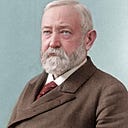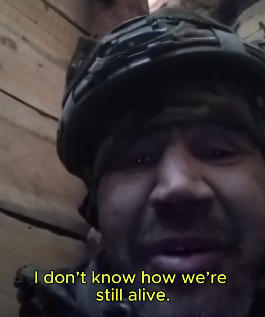Ukraine Will Define The Next Century

The Russian war of aggression (also known as the “special military operation” according to Russian propaganda) against Ukraine marks a turning point in history. While it remains a fairly standard attempt at a land and power grab by a foreign belligerent against a weaker neighbour, it was the largest attack on European soil since the Second World War. That conflict, being the most devastating in human history, seemed to have ended the bickering and power plays among European nations in favour of a new normal — that of peace and shared prosperity. A cynic may claim that Europe has had many periods of peace before engaging in further devastating wars but the post-WW2 era saw a tightening of European bonds like never before. Open borders, free trade, and a shared currency helped cement their union into something that history will likely see as a benchmark for a better world.
Putin’s war has changed all of that. It threatens to destabilize the world and return us to the eras of wars for conquest and wholesale slaughters of those who are on the receiving end by virtue of the fact that they are powerless to stop it. If he isn’t defeated decisively in Ukraine and if the world’s bad actors see the collective impotence of the West, there will be no turning the tide. We can expect brutal attacks to engulf much of the contested world.
Since WW2 and the end of the Cold War, the world has had one superpower in the US. It has been the backbone of NATO and a mediator/interventionist in foreign conflicts. Aggressors have had to rethink their actions prior to making moves on the world stage due to this ever-present threat. Its military and economic power have been enough to allow other nations to cut back on their own military spending and do their best to establish good relations with this juggernaut. There is no shortage of examples where the US has abused its power and influence in order to advance its own interests abroad and often to the detriment of civilian populations. Further, there will be no attempt to explain away or apologize for those underhanded tactics. (Russian apologists, rabid anti-Americans, and useful idiots will gladly jump on this as though a coup in South America is somehow grounds for open warfare in Ukraine. A childish “but you did it first” bad faith attempt at an argument as opposed to acknowledging the travesty it was and the justice it still demands.) It can’t be denied, however, that fear of US reprisal has kept various dictators and autocrats from fulfilling their ambitions.
A decline in power, the willingness to use it, or merely the perception of sapped strength has emboldened the world’s worst. This is where we find ourselves today.
America and NATO as a whole have become bogged down with domestic concerns and simple complacency. There is the prevalence of the idea that all is well enough abroad and that all will remain as it is indefinitely. That we have our own concerns and should care nothing about what lies outside our borders. That major wars are a thing of the past and that the world has moved forward collectively in the way the West has. That we have no responsibilities regarding nation building or the promotion of liberal democracy. Nothing could be further from the truth.
Recent years have seen an increase in brutal wars and suppressions by dictators across the globe as they tighten their grips on their own spheres of influence. For all their faults and missteps, the US and NATO’s ability to counterbalance the madmen of the world was effective. The prevalence of civil wars over conflicts between nations has shown this method of world policing has worked, albeit not perfectly. Yet today’s NATO has proven to those waiting patiently in the shadows that they no longer have the means or the stomach to stand in opposition to tyranny.
Syria, Yemen, and Ukraine to name a few. These places have become playgrounds for the world’s autocrats, imposing their wills without restriction or, more importantly, consequence. The disastrous exit of Afghanistan saw the atrophied but never defeated Taliban reacquiring their former territory as the US left, nipping at their heels and seemingly daring history’s greatest military to respond. US troops had not yet left the country as the militant dictators reassumed complete control. No response ever came, undoing decades of work. These failures solidified the idea that the West has lost its will and opened the door to full-scale invasions and wars of conquest. Putin has seen this weakness. He tested the waters in Georgia in 2008 and Crimea in 2014 finding that he could do as he wished. Now he has made his move and in retrospect this escalation seemed inevitable even to casual observers.
In response to his aggression, Putin has been met with economic sanctions and stern international condemnation. The hundredfold surge in thoughts and prayers for his enemies by both leaders and populations alike have also done little to slow his advance. While the sanctions are labeled “crippling” by economists, they are slow moving and will have the most impact on the Russian populace as opposed to the oligarchs and government targeted. Putin has calculated that he can win before the economic impacts on himself and his cronies are too great. Take control, offer a ceasefire and humanitarian aid, and settle into a new normal where meager concessions are offered in exchange for your continued power over a foreign country. This would be welcomed with open arms by a weak NATO over continued warfare and Putin will have won yet again. Further, economic sanctions are limited in their ability to influence a government, especially one that has no issue suppressing its own people and watching them suffer. If the economy was a dictatorship’s Achilles’ heel as purported there would be no psychotic dynasty ruling over North Korea. Simply put, economic sanctions are a feeble deterrent when the aggressor cares little about their impacts and his enemies offer only harsh words while continuing to cut him cheques.
Vague and ridiculous claims of “de-Nazifying” a nation with a Jewish leader becoming a valid justification for war means autocrats will no longer even require a pretext for future invasions. And if they are met with nothing but sanctions by those who still send them cash on a regular basis out of pathetic dependency, nothing is off the table.
Ukrainians exercising their sovereignty and possibly joining NATO to Putin’s chagrin being put forth as a legitimate reason for war serves only to reinforce the truth of the world we face. One where tyrants have become so emboldened that they expect the world to bend to their will and accept their forceful attempts to shape it as they see fit. Perhaps worse are those puppeting this idea as it shows just how persuasive, and how much more dangerous, a thug can be.
Economic and political isolation, removal from the SWIFT payment system, and a general shunning from the greater global community leaves one with few options: complete autarky or new alliances. The former is all but impossible in a globalized world leaving only the one possibility. At the very least, this latest Russian aggression threatens to split the world between democracies and their despotic rivals. While it may seem like the plot for a comic book movie (as all horrifying possible futures do), the increase in number and power of the world’s oppressive governments combined with their ostracization opens the door to their mutual cooperation. Russia has its own replacement for SWIFT underway, China has one as well. We are currently blessed with their inability to overcome their individual greed and hunger for power but the possibility of an entirely new cooperative among the world’s worst nations is very real. And with it, a new Cold War.
Russia is a nation with a GDP roughly equivalent to that of Texas. It has an economy almost entirely dependent on commodities and despite having a large military is no superpower, relying on sheer audacity and nuclear armament to deter much more powerful countries from wiping its forces from its occupied territories. Beyond this invasion, a far more important question is what a belligerent, burgeoning nuclear superpower with a stranglehold on its side of the globe would do knowing what one of its inferiors can so easily get away with. If a hobbled and well past its prime dictatorship can carry on with impunity on NATO’s very doorstep, what possible repercussions can a religious despot with unlimited funds and sway over an absolute necessity expect? What would prevent a rising dictatorship, already trampling on both borders and human rights, from invading nearby islands, claiming them as their own and brutalizing its neighbours into submission?
At this point the only things that have prevented the fall of Kyiv and the complete dissolution of the democratically elected Ukrainian government in favour of a Russian puppet state are Ukrainian determination and Russian logistical incompetence. Neither of which are guaranteed in future conflicts. Footage of brilliant Ukrainian ambushes and counterattacks are as widespread as those showing Russian forces looting convenience stores for sustenance or abandoning their tanks due to lack of adequate fuel supplies. We should avoid relying on luck and enemy stupidity as cornerstones of our foreign policy when faced with open warfare.
Ukraine will define the next century. Whether the West will capitulate and allow bad actors to run rampant, pillaging neighbouring lands and spreading the notion that democracy and liberalism are weaknesses to be avoided. Or it will become the place where another tyrant was broken and his ilk were reminded that the free world is something its people will still staunchly defend.
Ukraine, in a way, is our last stand.










